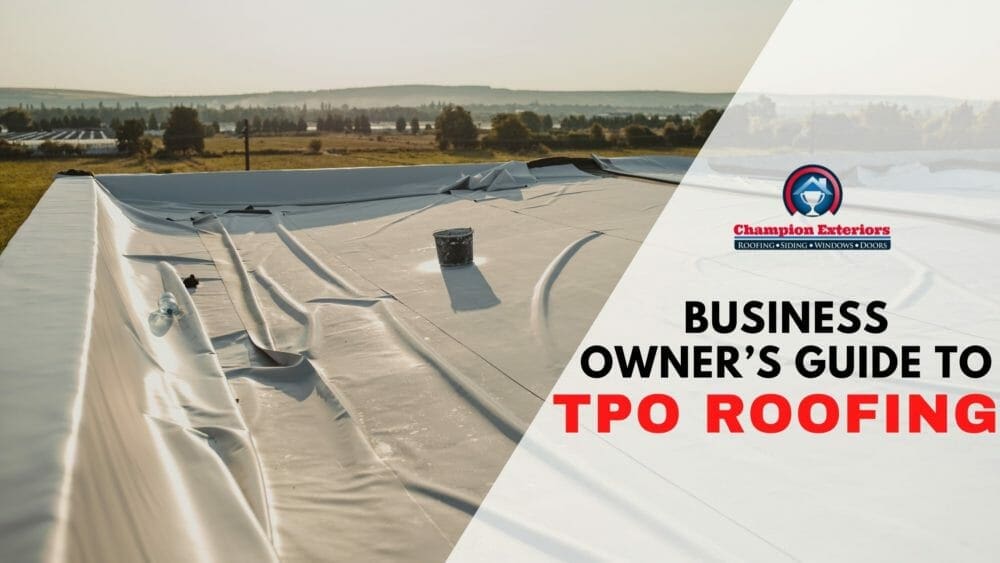Businessowners, apartment managers, and building maintenance teams find that TPO Roofing is the best solution for their roofs. TPO is the fastest-growing segment of the commercial roofing market because it delivers the benefits of impressive durability and long-lasting performance.
According to the National Roofing Contractors Association (NRCA), TPO is used in around 40% of commercial roofing projects today. Although TPO is a relative newcomer to the membrane industry, it was created to combine the best features of two other major membrane types: EPDM, which has a reputation for being relatively cost-effective, and PVC, which is known for its durability.
What Is TPO Roofing?
A thermoplastic polyolefin roof is composed of polypropylene, which acts as a waterproof barrier. Polypropylene is a chemical compound known for its durability, elasticity, and water resistance. When applied to the surface of roofs, TPO can function as a highly effective barrier against moisture that could otherwise cause costly damage to buildings.
The other component of TPO is ethylene propylene rubber, a synthetic elastomer related to rubber. Ethylene propylene rubber is an ideal component for this application due to its resistance to weather, ozone rays, heat and oxidation.
How Do You Install TPO Roofing?
The installation process of a TPO roofing system is relatively simple. First, we clean the roof and inspect it to ensure that it is in good condition to support the weight of the new membrane. Next, we roll out the TPO membrane over the roof and use a mechanical tool or adhesive to fix it to the roof’s cover board. Then we use a hot air gun, also known as a hot air welder, to seal the seams of the TPO material together to complete the TPO roofing installation and efficiently insulate the roof.
What Are The Benefits Of TPO Commercial Roofing?
There are many benefits of installing a TPO roof system, including:
Durability:
TPO roofs have been shown to last up to 20 years, making them a cost-effective solution in the long run.
Energy Efficiency:
TPO roofs help improve the energy efficiency of buildings by creating better insulation. This helps keep heating and cooling costs down, particularly in colder climates.
Aesthetics:
Building owners who choose this type of roof also benefit from its attractive appearance, which can lower maintenance costs for facilities with highly visible roofs.
Class A Fire Rated:
TPO membranes can be made to meet Underwriters Laboratories (UL) Class A fire resistance standards by using fire retardant chemicals during the production process.
Regardless of the roofing system you select, the contractor’s knowledge and expertise will ultimately determine the quality of the installation. Champion Exteriors has been installing commercial roofing systems for over 80 years. We understand the demands of industrial facilities and can help you find the best solution for your needs.
Our team does what it takes to complete every project on time and under budget, ready to tackle all types of installations, from small repairs and replacements to large-scale projects. As a leading commercial roofing contractor in New Jersey, we take great pride in our many satisfied clients and their success.


